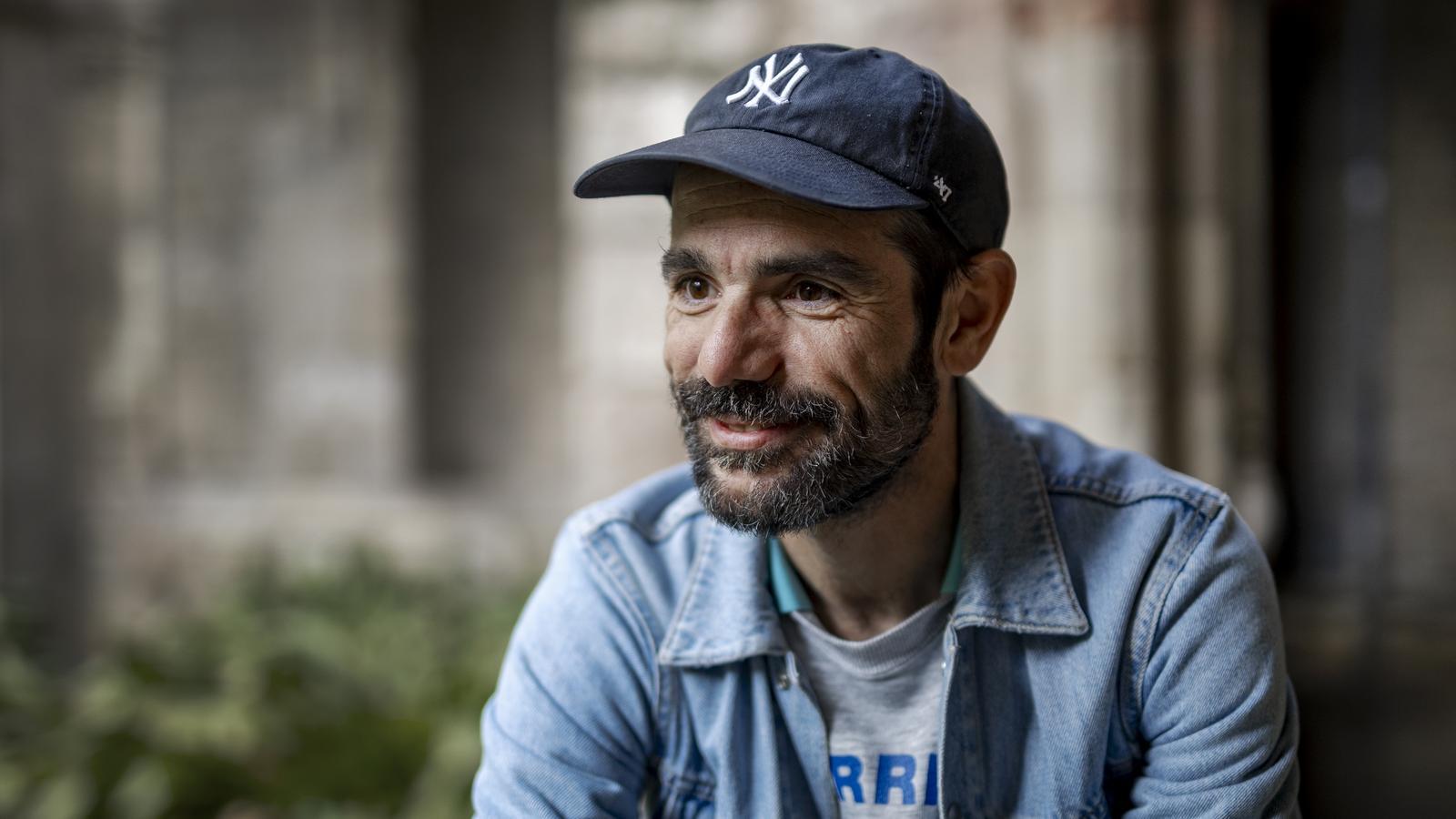"The Dream Team's story could be a Tarantino film."
Journalist Oriol Rodríguez reconstructs the history of Barça in the early 1990s in an oral account that includes music and popular culture.


BarcelonaThe Barça scarf that Oriol Rodríguez (Barcelona, 1976) had worn to celebrate Barça's first Champions League title in 1992 ended up on the stage floor at the Zeleste venue four years later. Oriol, who had read that Oasis members were football fans, threw it in the hope that one of the members of the Manchester group would catch it. And so it was. Liam, the singer, saw it, picked it up, and took it with him. And so, symbolically, an era ended.
Rodríguez had been writing the book he has just published for 25 years, without being entirely sure of it: At One Point: An Oral History of the Dream Team (Barça Books). A book that combines interviews with key players from a legendary team with personal reflections on what it meant to be young in the early 1990s. "Being young then was beautiful, without wanting to idealize it too much," explains the author of the 2018 book. Touched by the Wing: An Oral History of Catalan Rock (Contra, 2018). Being young in the early 90s meant experiencing Olympic Catalonia, being able to fill the Palau Sant Jordi with thousands of voices singing Catalan anthems, and enjoying the Dream Team while new musical genres arrived from the United States or the United Kingdom.
"The society was completely changing. This is the era that caused the Berlin Wall, the Jocs de Barcelona... and when the era of that era ended, the Internet began. Guardiola. The old footballers could be handsome and parade with Antoni Miró. It was a decade of indie culture when a North American film director arrived at the Sitges Festival with Quentin Tarantino presenting a cult film about elegantly dressed robbers. The book begins with the Hesperia riot of 1988 and ends with the Athens final of 1994. It begins with the Catalan rock concert at the Palau Sant Jordi in 1991 and ends with the first Oasis concert in Barcelona in 1996," he said. Yes, the one with the scarf.
In some way, the Dream Team began to take shape with the famous Hesperia riot of 1988, when the players rebelled against Josep Lluís Núñez. And Núñez ended up sacking fourteen of those players. And so the door was opened for Cruyff's return to Barcelona, now as a coach, although the story could have been very different. "Núñez wanted Javier Clemente, with whom I speak in the book. But Clemente knew it was impossible to go to Barça. He was the coach of that Athletic of the 80s and later of Espanyol. He admits that he had a good relationship with Núñez and that the president called him asking for advice on players who would be key that Clean me Clean that even Cleme . , since the whole Barça called him up and Johan would get angry," explains Rodríguez, who sees parallels in the debate between Clemente and Cruyff in the 80s, with the one that would later live between Mourinho and Guardiola.
Joan Gaspart, always present
The book honors supporting actors like Amor, who sacrificed himself after receiving a yellow card that kept him out of Wembley, Eusebio, and Bakero. It also recalls players like Milla, who would eventually leave for Real Madrid, suffering the other side of the same story. And characters who seem like something out of a movie, like Joan Gaspart, who would remind Rodríguez how everything could have changed if, at the February 1990 meeting, the members who called for Cruyff's ouster had won. "Gaspart, you know how he is. Sometimes he explains things and leaves you wondering what he really means. Speaking about that assembly, he explained to me how the votes were taken to a room in the hotel where it was held. And when he comes back, they tell him that he's won, even though he's actually been thrown out. If everything has been done, everything has been done. That they could have cheated. Whatever it is, Cruyff goes on and wins the Copa del Rey against Madrid, who left the field and screwed a bar, where the waiter recognized him.
Because it was a time when football people became a kind of pop icons. "Even Núñez, whether through programs like Strength BarçaPeople imitated them. Players recorded songs, and people wanted to dress like them. It was a time with characters that seemed invented. Look at Stoichkov, for example. Born in a city that seems like a Tolkien story, in communist Bulgaria... he was banned for life for a fight and then pardoned. Cruyff fell in love with him, Minguella traveled to sign him with meetings where there was vodka in the morning, then he played a friendly in Mallorca where he made a mess... he was all character," says Rodríguez, who has saved space for star supporting actors like Romerito.
"The players
"When he arrived, it was the time of the Tiananmen protests. Poor Romerito was left alone facing the tanks, like that brave Chinese player. Or Jan Molby, the Danish player from Liverpool, who Cruyff fancied. He had ended up in prison for a few weeks for drink-driving, and the fans said he was good, that he should be out. Koeman was injured, and the kid was already in the hospital ready for surgery, but Cruyff and the board argued over who should operate on him... it was all picture-perfect, like Bakero's goal in Kaiserslautern," he recounts. A fascinating era, with incredible aesthetics. "Now all the stadiums look the same. The players all have the same hairstyles. Before, you'd see a player and you'd know where he was from just by his looks. You'd see Bakero and you'd know he was Basque; he looked like the singer of the band Barricada. The Kaiserslautern players all looked like members of rock bands like Scorpions, with those hairstyles, with those hairstyles, The hairstyles. The same year against the last champion of the GDR, Hansa Rostock, and the last one from the FRG..."
The story of the Dream Team "was a movie script, like a Tarantino film," with unlikely situations like Tenerife winning two league titles. What was the possibility of two consecutive seasons in which Madrid would lose the league in the same place, Tenerife? Or the end of the League with the penalty missed by Djukic?" A happy time that ended especially with the final in Athens in 1994, although Cruyff would hold on a little longer. "I finished the book in 1994, since the last few months were sad and unpleasant. coughing around the house, he came across a book by Nick Hornby. I had tried to do my version of his Fever pitch, the famous book in which the Briton explains his life through his passion for Arsenal. "I admire him so much. And I had it so internalized, that I was paying homage to him. Telling, on the one hand, the story of the Dream Team itself, but on the other, the story of that generation that came of age at that time," he claims.
Those early 90s, the end of the Cold War, when it seemed like the world would be happy, all united. In the summer of 1992, of the Olympics and Wembley. The generation that soon after began to understand that things wouldn't be so easy, with new wars and new problems in the mid-90s, a time of economic crisis. And of the end of the Dream Team.
